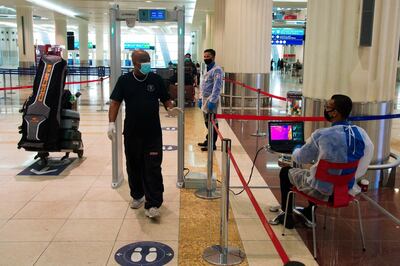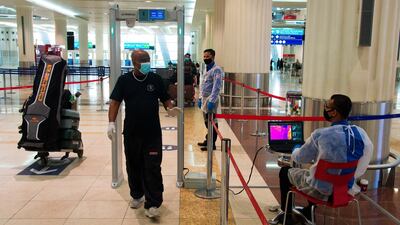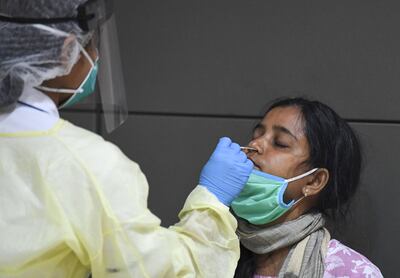Residents will be permitted to travel abroad from June 23, under new guidelines released this week.
In March, the UAE closed its borders to everyone but returning Emiratis, in its attempt to prevent the spread of coronavirus.
In the process, more than 200,000 residents who were abroad at the time became stuck in different countries.
The UAE is in the process of bringing those people back with safety measures in place to avoid the risk of a second wave.
Many residents who traditionally escape the long, hot summer in the UAE still want to travel this year.
The country now has a system that will allow residents to fly abroad to certain low-risk destinations, thereby reducing the risk of importing more Covid-19 cases when they return.
How will it work?
The National explains.
What is the situation now?
Anyone who is currently abroad must apply for permission to return to the Emirates via the Federal Authority for Citizenship and Identity website.
Applicants can only book their flight tickets after receiving approval from authorities.
At first, approvals trickled in, but the UAE stepped up efforts to bring everyone with valid residency visas back in mid-June.
Authorities have said requests will be processed in 48 hours. Some people have reported receiving clearance to fly in even less time, but others are still struggling to complete their applications.

What will change on June 23?
Dr Saif Dhaheri, spokesman for the National Emergency Crisis and Disaster Management Authority, said travel will be allowed to “certain destinations”.
Countries have been categorised as high, medium or low-risk. All citizens and residents will be allowed to travel to low-risk nations.
Only a “limited category” of Emiratis will be allowed to travel to medium-risk nations in cases of emergency, “namely for necessary medical reasons, visiting first-degree family members, or for military, diplomatic and official missions”.
Travel to countries deemed high-risk will be banned.
Which countries will be low, medium and high risk?
The UAE is yet to announce this, but the active number of cases could be a factor.
How do residents receive permission to fly?
All residents, regardless of where they intend to travel to, must submit a request via the Federal Authority for Citizenship and Identity’s website, and register for the Twajudi service before they fly.
Travellers must submit an ‘individual health accountability form,’ which includes an agreement to undergo quarantine on their return and to not visit destinations other than the ones they have applied to travel to.
Once they receive permission, what is the next step?
NCEMA has said "all travellers" must also undergo a Covid-19 test before they fly as “the health regulations in the country of destination may require a test result which dates back to no more than 48 hours before the travel date".
"The test result has to be displayed at the country's airports via the Al Hosn app. Only travellers who tested negative for the virus will be allowed to travel."
They must also have international medical insurance which covers the country they are visiting.
Face masks and gloves must be used in the airport, and social distancing must be observed.
What to do if you contract Covid-19 abroad?
If travellers contract Covid-19 while they are overseas, they should notify the country's UAE embassy, either through the Twajudi service or directly.
"The UAE mission will ensure that Covid19 patients are taken care of and the UAE Ministry of Health and Prevention is notified," NCEMA said.
Will anyone be prevented from travelling?
Yes, people above the age of 70. Those with chronic diseases will be discouraged, but will not be prevented from leaving.
People with the virus, those with a high fever (37.8°C and above) and anyone suspected of having Covid-19 will also be prevented from travelling.
What procedures will they follow on return?
Everyone must wear face masks “at all times” when they return.
Travellers must produce a special form of their itinerary, in addition to a health status and identification documents. They must download the Al Hosn app on their mobile phones.
Everyone must submit themselves to quarantine, which could be reduced to seven days for those returning from countries of lower risk or for professionals in critical sectors.
Anyone with Covid-19 symptoms must undergo a test within 48 hours of entering the country at an accredited facility.
Anyone who cannot quarantine at home must commit to a stay in a private address or a hotel and cover all expenses.



